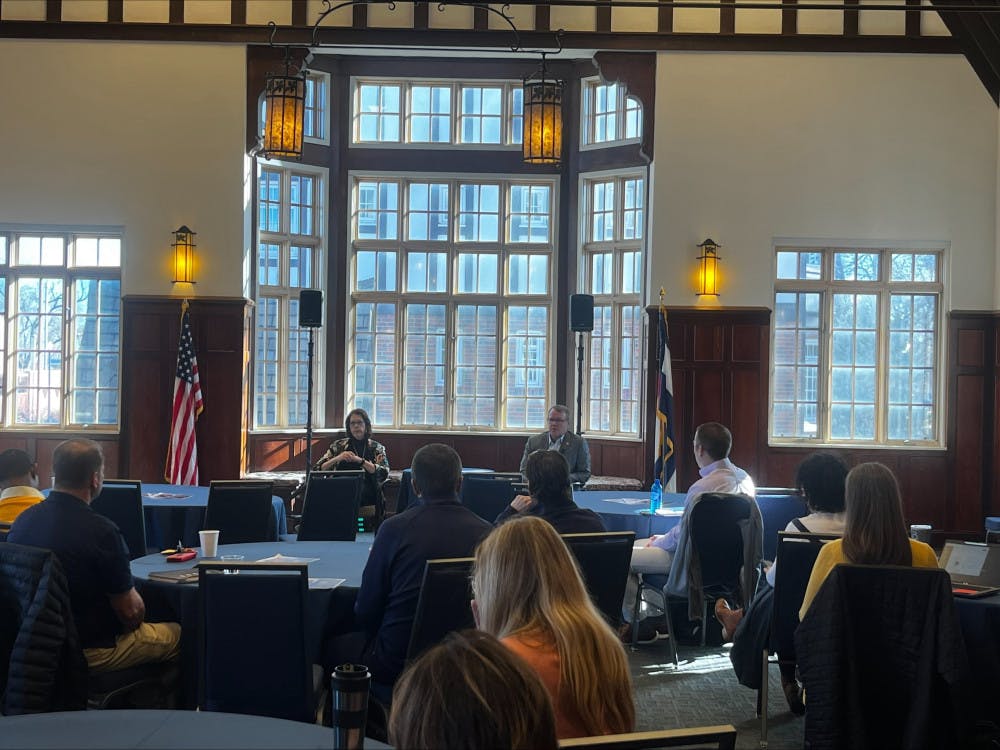Since the beginning of 2024, progress has been made in the approval and construction of an osteopathic medical school at the University of Northern Colorado. UNC President Andy Feinstein and Founding Dean Dr. Beth Longenecker hosted an informal group discussion at 9 a.m. Tuesday morning in the Centennial room of Brown Hall. They detailed the progress in UNC’s strategic plan to bring a medical school to campus.
Detailed in the Feasibility Report published back in 2021, an osteopathic medical school at UNC would fill a major need for physicians in Colorado, along with a significant boost to the Greeley and Colorado economy. Pursuing this initiative grants UNC funding from the community, such as the $25 million given from The Weld Trust, but this only goes so far. It is estimated that over $200 million will be required for the construction and start-up of the proposed college.

This budget covers multiple aspects of the establishment of the medical school. Firstly, the construction of the new facilities where Bishop-Lehr Hall is currently located will cost about $127.5 million, and operating capital until the school breaks even with tuition will be around $30 million.
This operating budget includes the creation of an administrative team formed of individuals from UNC and the surrounding community, which has already been formed to develop and support the mission of the proposed school. Dr. Longenecker explained that the mission has been approved by the Board of Trustees, which is a requirement of official accreditation as an osteopathic school.
“The mission is to provide transformational education to medical students in a collaborative environment,” Longenecker said. “Focusing on interprofessional education and really bringing forth those doctors who will positively impact not just locations, but the communities they are going to serve.”
The Commission on Osteopathic College Accreditation, or COCA, is the governing body that certifies osteopathic schools in the United States. To become accredited with COCA, there are many conditions that must be met. Such as the previously mentioned mission statement.
One of the other requirements for accreditation is that about $42 million must be locked away in an escrow account that the university cannot access until seven years after the founding of the medical school. Feinstein explained that the fund is required so that in the event that the college goes bankrupt, the university would have the funds to pay for those displaced students to attend another medical program at a different university.
“It really is a huge hurdle," Feinstein said. "It really stops a lot of medical colleges from getting off the ground."

Feinstein then went on to explain that the plan to obtain the remainder of the funding revolves around a bill that UNC has been preparing to present to the Colorado state legislature next month. The bill will request $170 million for UNC in state funding through a financing agreement known as a Certificate of Participation, or COP for short.
COPs operate similarly to bonds, as they allow organizations to use a lease structure and borrow money for capital projects. The state of Colorado has current COPs expiring in 2027, and that is when UNC will be aiming for this financing to begin.
Additionally, other universities and colleges around the state have joined the bill to request funding for the enhancement of their medical programs as well. These institutions include Metropolitan State University, Colorado State University and Trinidad State College. What started as a $170 million bill has grown into almost $300 million.
“It’s a statewide initiative,” Feinstein explained. “It’s focused on healthcare, health sciences, economic development and workforce development.”
Feinstein has been down in the state capital recently, and will continue to visit in the coming weeks to advocate for the passing of the bill. Voting on the bill will take place in late February or March, and then the strategic plan to establish the medical school will be based on the outcome of that vote.
“I think we’ll have a lot more concrete understanding of what the next best steps are in March.” Feinstein said.
This is the first of many discussions in the Office of the President’s Spring 2024 Engagement Opportunities, aiming to extend the dialogue to the UNC community on a number of strategic plan priorities. Requests for ASL, Spanish language interpretation and accommodations for disabilities may be made upon registration or by contacting president@unco.edu.






